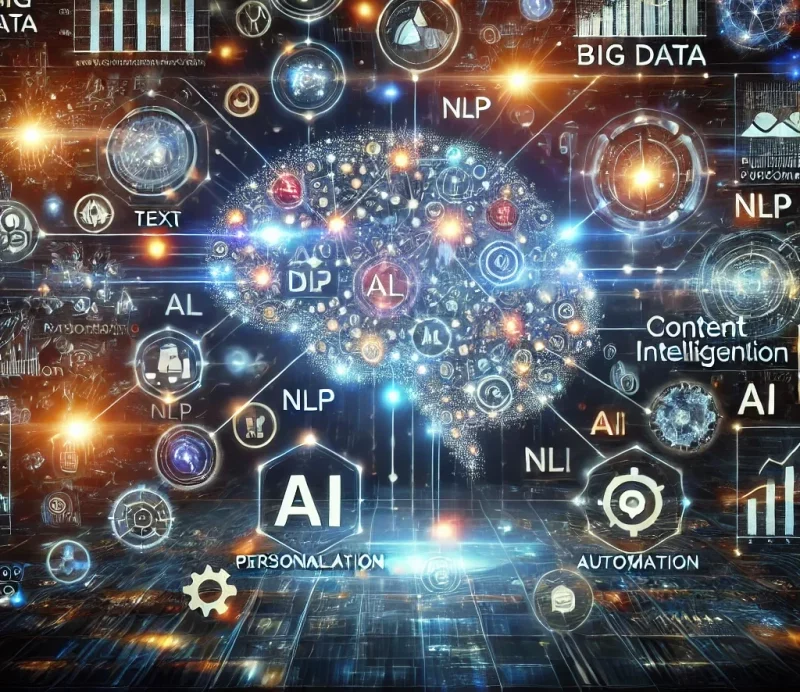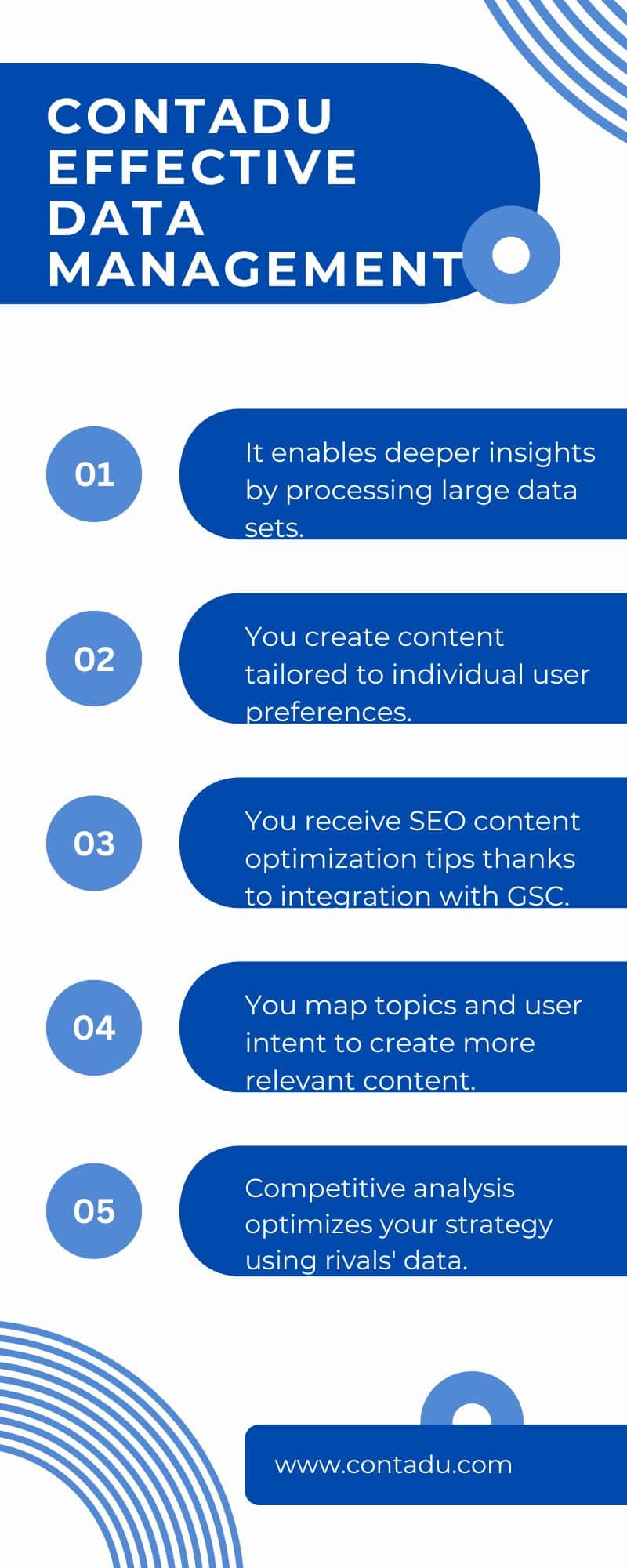The Role of Big Data in Content Intelligence.

In today’s world, where information is generated in unimaginable quantities, Big Data has become a key component of business strategies. Companies, in order to survive and grow, must be able to effectively analyze and use this data. One of the most important areas where Big Data plays a key role is in Content Intelligence. In this article, we take a look at how Big Data affects content creation, distribution and optimization, as well as the benefits it brings to companies.
Understanding the relationship between Big Data and Content Intelligence.
The relationship between Big Data and Content Intelligence is the symbiosis that drives today’s marketing and media strategies. Big Data provides untold amounts of information that is critical to understanding consumer behavior, market trends and expectations. Content Intelligence, in turn, processes this data and extracts valuable information from it that can be applied to create and optimize content that is better tailored to the needs of the audience.
Big Data is characterized by three key features: volume, velocity and variety. In practice, this means that companies have to deal with huge data sets that are generated at a rapid pace and take a variety of forms – from text and images to videos and data from IoT devices.
Content Intelligence, on the other hand, makes use of advanced tools such as natural language processing (NLP) and semantic content analysis and allows them to identify key trends, users’ intentions and tailor content to their individual preferences.
Applications of Big Data in Content Intelligence.
Examples of Big Data applications in Content Intelligence are numerous and cover a wide range of activities:
Data collection: Data collected from a variety of sources – social media, websites, mobile apps – allows for deeper analysis of user behavior, preferences and interactions with content.
Data analysis: Advanced analytical techniques allow segmentation of users, identification of popular topics and evaluation of content effectiveness. Companies can precisely analyze which content engages users and which goes unnoticed.
Personalization of content: With the collected data, it is possible to personalize content, which includes product recommendations, dynamic content on websites or personalized email campaigns. All this leads to greater user engagement.
Content optimization: Big Data allows companies to test different versions of content (A/B testing) and optimize it for SEO, format or publication time.
A comparison of different Content Intelligence tools.
The market is full of many content intelligence tools, each offering unique features and capabilities. Some platforms excel in social media analytics, providing insights into audience engagement and sentiment, while others focus on SEO and keyword optimization to increase content visibility. Comparing these tools includes assessing their strengths and weaknesses in areas such as data integration, reporting capabilities and scalability. Marketers should consider their specific needs and budget when selecting a content intelligence tool, ensuring alignment with their overall content marketing strategy.
Benefits of using Big Data in content intelligence.
Implementing Big Data in content intelligence processes brings numerous benefits to companies:
Better understanding of audiences: Analyzing user behavior allows for personalization of content, which increases engagement.
More effective marketing campaigns: Better targeting and trend prediction increase the effectiveness of marketing efforts.
Content optimization: Big Data makes it possible to measure the effectiveness of content and automate its production.
Reputation management: Monitoring brand mentions and sentiment analysis facilitates rapid response to crises.
Better decisions: Data supports strategic decision-making and innovation.
The future of content intelligence and Big Data.
Looking to the future, we can expect an even greater symbiosis between Big Data and Content Intelligence. The development of artificial intelligence (AI) and machine learning opens up new possibilities for the automation of creative processes, which will allow companies to deliver content even more precisely tailored to user expectations. Automatic reporting, real-time content personalization, and advanced semantic analysis will become everyday life in content management.
In the coming years, technology will play an increasingly important role in content creation and optimization, enabling faster response to market changes and a better understanding of our audience. Thanks to this, we will be able to make more informed strategic decisions that will contribute to their further development and success.
CONTADU: Faster, better decisions through advanced data analytics.

Conclusion
The relationship between Big Data and Content Intelligence is a rapidly developing area that offers huge opportunities for companies across industries. Using advanced analytical techniques in combination with huge data sets allows for the creation of more engaging, personalized, and effective content. In the future, the development of technologies such as artificial intelligence will certainly continue to transform the way we manage content, opening up new opportunities and challenges for companies.
